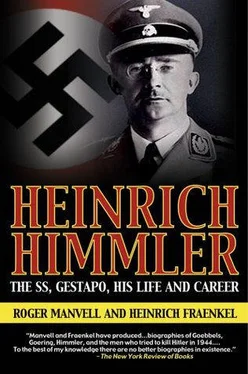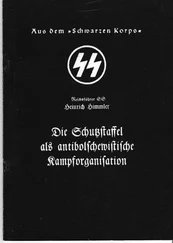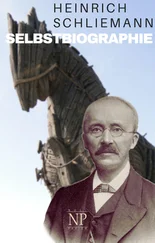An operation that formed a part of Himmler’s initial contribution to Hitler’s plan for the attack on Poland was named after him. It is ironic that Operation Himmler should have been a cruel act of deception involving a revolting atrocity. The general plan to stage faked incidents along the Polish frontier in order to provide suitable provocation for the invading forces had already been in Himmler’s mind when he had hoped to take part in an attack on Czechoslovakia, but in that case his deceits were not needed. Now in the case of Poland, they were to be developed on a considerable scale, and Heinrich Mueller, the head of the Gestapo, was put in charge of these operations. It was part of the plan that a number of prisoners from concentration camps should be dressed in Polish uniforms, given fatal injections by a doctor and at the right moment shot at until they were bordering on death. These victims were to be brought in under the code-words ‘canned goods’. Their bodies were to be photographed for publication and shown to press representatives accompanying the German Army.
The story of these faked attacks and of their attendant atrocities was revealed at Nuremberg after the war in an affidavit sworn by the S.D. man who led the principal raid on 31 August against the German radio-station at Gleiwitz, close to the Polish border. 29Having affirmed this story at Nuremberg, he escaped and was not heard of again until he re-appeared under his own name in 1964, and sold the story to Der Stern. At Nuremberg, he told how he raided the station, taking with him a Polish-speaking German who broadcast a provocative speech against the Reich, and how at the last minute he deposited a dying man on the scene whom the Poles were supposed to have killed. This was Operation Himmler, the first criminal act with which the Second World War began on 1 September 1939 with the invasion of Poland.
The subtle balances of power between the Nazi leaders at the beginning of the war are not easy to measure. After his successes in Austria and Czechoslovakia, Hitler withdrew himself from the others, becoming more arbitrary and autocratic in his procedure and less susceptible to advice or pressures designed to change his line of action. If Ribbentrop and Himmler rather than Goring or Goebbels were said to be in favour of war during 1938-9, this was due solely to their more ready response to Hitler’s will. They blindly supported and encouraged his advance towards war and had none of the reservations about Germany’s readiness for full-scale hostilities which occupied Göring’s mind. Goebbels after the summer of 1938 had been temporarily in disgrace with the Führer because he had asked to be relieved of his duties so that he might divorce his wife and marry the Czech actress, Lida Baarova. After his experiences with Roehm and Blomberg, and later with Brauchitsch, the Commander-in-Chief of the Army who had had a troublesome divorce and married a young girl, Hitler was tired of seeing the love affairs of his subordinates interfere with their concentration on the grand strategy that he now had in mind. Himmler’s discreet liaison in Berlin with his secretary Hedwig was to be far less disruptive. According to Lina Heydrich, Himmler indeed became a different man as a result of his orderly love affair. Hedwig even led him to abandon the little chain which secured his pince-nez to his ear, and influenced him to wear his hair with a less severe cut.
Himmler’s relationship with Heydrich during the first year of the war became deeply involved. When Himmler had first appointed Heydrich to the S.S., they had both been young men, Himmler thirty-one years old and Heydrich twenty-seven. Even now, at the beginning of the war, Himmler was still not yet forty and Heydrich thirty-five. The closer observers of these two very different men, such as Gisevius, Kersten and Höttl, differ very little in their assessment of Heydrich. 1To Höttl, who worked for Heydrich and later for Schellenberg on the forgery of passports and banknotes, Himmler was a mediocrity in comparison with Heydrich, who had little use for his commander’s obsessions, racial or otherwise, and rapidly learned how to exploit the power delegated to him. In the end, according to Höttl, he undermined Himmler’s position to such an extent that he achieved direct access to Hitler and, had he lived, might well in 1943 have been appointed Minister of the Interior by the Führer in order to break, or counterbalance, the power accumulated by Himmler. However, Heydrich’s position in relation to Himmler was weakened, not strengthened, when in September 1941 Hitler, without consulting Himmler, appointed him Deputy Reich Protector in Czechoslovakia. Heydrich was instructed to master that unhappy country, which was proving rebellious under the comparatively weak rule of Reich Protector Neurath, who had been Hitler’s Foreign Minister before the appointment of Ribbentrop. Neurath was forced to leave matters entirely in the hands of Heydrich.
Heydrich’s gradual movement towards comparative independence came during the first two years of the war. Himmler, who was never a man for immediate action, delegated to him an increasing number of the monstrous tasks required by Hitler, and even tolerated a situation in which Heydrich reported direct to the Führer or to Goring. Himmler, it must always be remembered, was a sick man who from 1939 to the end of his life could only find relief from his physical and psychological tensions through Kersten’s expert massage.
It is a profound mistake to underestimate Himmler, the very mistake, in fact, which allows such apparently insignificant men as he to win extensive power in politics or industry. Behind the rimless pince-nez, the trim and correct moustache, the receding, obstinate chin, and the narrow, sloping shoulders there was a man of passionate beliefs, whose attitude to power was not to luxuriate in it like Goring, or to fulfil the ambitions of an orator and political demagogue like Goebbels, but to realize a self-conceived, Messianic mission on behalf of the Germanic race.
But with his particular temperament and poor physique, he never could become a man of action. There can be no doubt that he always wanted to prove himself in this way; he saw himself as a uniformed policeman and soldier, even as a commander in the field, but he lacked both the mental and physical stamina for these things, and in the end he only made himself ridiculous. But by that time Heydrich was dead. During the years preceding 1939, while the S.S. was being developed, and during the first two years of the war, it was Heydrich who was astute enough to supply Himmler with ideas and the means to carry them out, becoming his alter ego until the point was reached when he was able to break free and make his own bid for power, serving directly under Hitler.
According to his long-suffering wife, Lina Heydrich, who was as ardently Nazi as Magda Goebbels and like her enjoyed attending smart parties given for smart Nazi wives, her husband would come home cursing the stupidity and waste of time which Himmler’s racial and other beliefs imposed on the administration of the S.S. Once he had seized power over Himmler, he did not fail to let him see the contempt he had for all this crazed mythology. For Heydrich it was not the theory but the practice that mattered; as he saw it, there was no need for elaborate theories on which to base the obvious necessity to persecute all those whose mere existence impeded ‘Aryan’ dominance. But whatever open differences there were between Heydrich and Himmler, Heydrich was always careful to keep their formal relationship unimpaired.
According to Gisevius, who for a brief period worked under him, Heydrich was ‘diabolically clever’, keeping himself always in the background and using roundabout ways to achieve his aims. His methods of terrorism were kept as secret as possible. He had a ‘peculiarly murderous bent’, teaching his men ‘the by-laws of applied terror’, one of which was, as Gisevius put it, to ‘pass the buck’. He practised his oppression always in the name of discipline, justice, or the needs of being a good German, leaving it to Himmler to preach the more high-flown doctrines that in the end led to the same oppression of the same people. In all the Nazi leadership, as Gisevius points out, it was the experts in violence who rose to the top: ‘The dominant trait of all of them was brutality. Goring, Goebbels, Himmler, Heydrich… thought and felt only in terms of violence.’ Schellenberg, who served Heydrich and Himmler for twelve years, has left the best description there is of Heydrich:
Читать дальше











